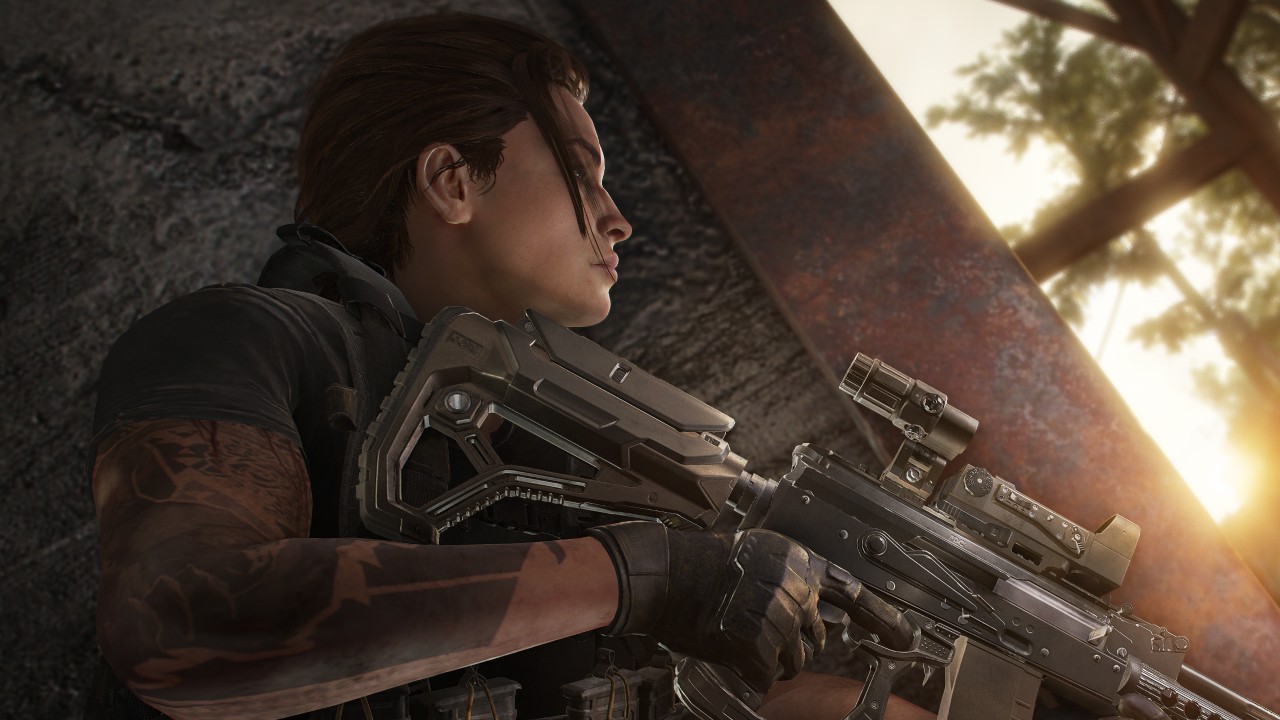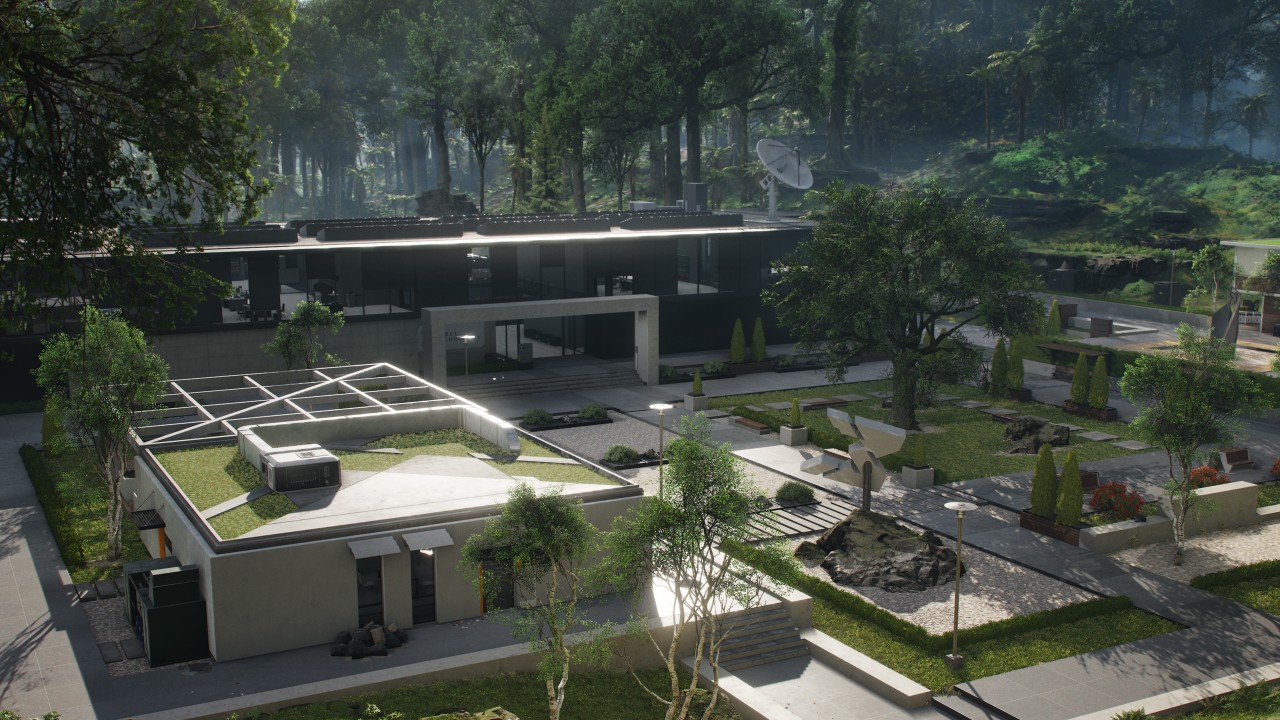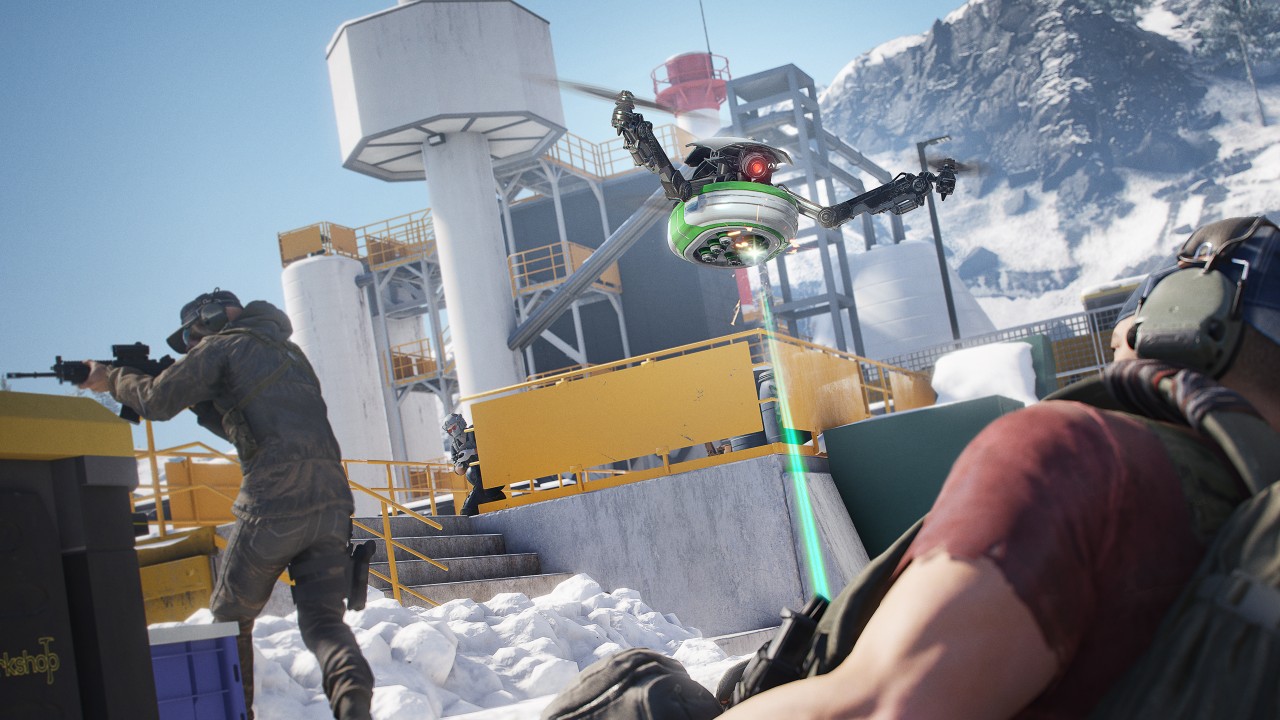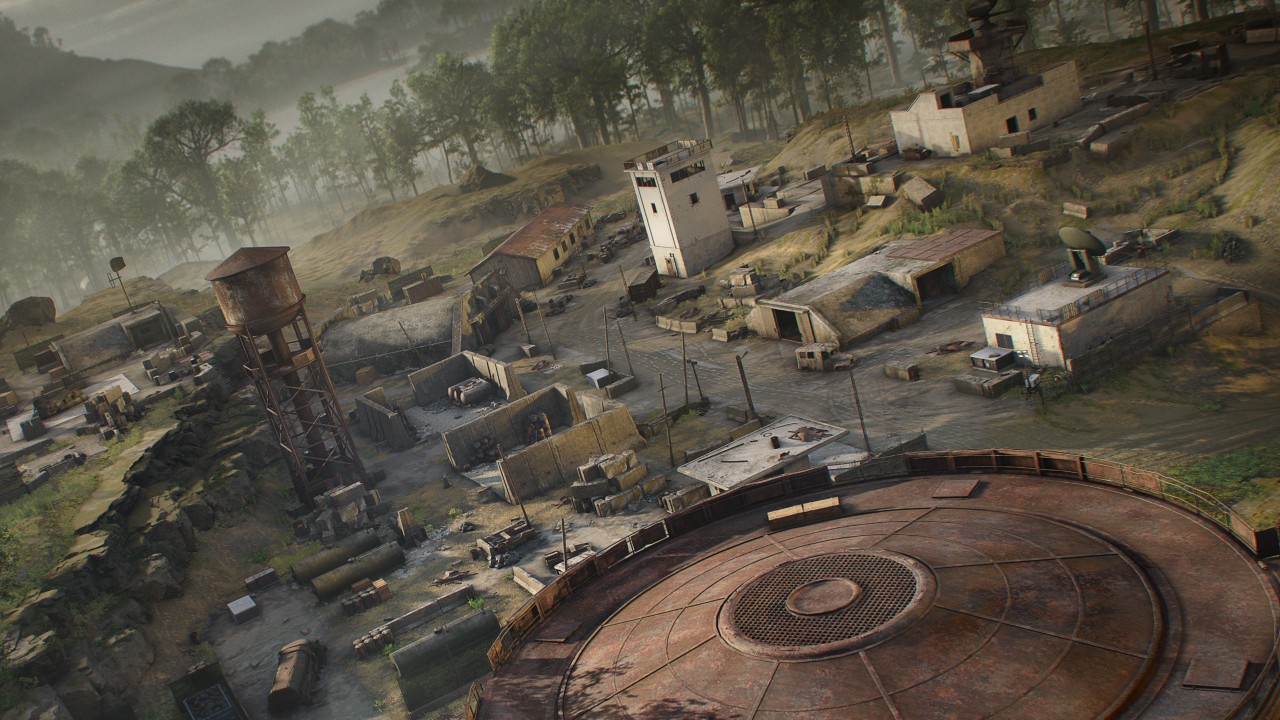Ghost Recon Breakpoint's new PvP philosophy is all about "encouraging more active gameplay"
Plus lead game designer Alexandru Rais on those dang drones

"Are you competitive?" A Ubisoft Paris employee asks my team. He's about to take us through Ghost Recon: Breakpoint's revamped version of Ghost War, the PvP mode that debuted in 2017's Ghost Recon Wildlands. "Because every team that I've coached has beaten those guys," the rep announces as he gestures to the other side of the room, where four members of the Ubisoft team are sitting.
He loads up Elimination, a deathmatch game type (with some ol' Ghost Recon tactical flair) where two teams of four face off. The first round is over before I have a chance to throw a grenade – the opposing team splits in two and flanks us quicker than we can say "Jon Bernthal." Our coach sighs. The next round isn't as swift – with the ability to revive fallen teammates, our numbers constantly fluctuate, drawing out the length of a match. They take out one of us ('4 v 3' flashes on the screen), but I run the long way around a massive rock and revive my teammate as two enemies fall (the screen boasts '2 v 4'). "Remember to tag them, guys!" Our coach yells as we call out enemies instead of using the tagging feature, which lets you mark someone while aiming down sights. This inability (or unwillingness?) to tag is our downfall, and the Ubisoft guys wipe the floor with us. "I'm not gonna lie, I'm disappointed," he says.
We're a lot better at Sabotage, where you choose one of two locations to plant a bomb and guard it so the enemy team can't diffuse it. The squads switch off between arming and diffusing, but my team is somehow great at both. "So we can't kill, but we can do bombs," I offer up as we win our second Sabotage match in a row. Our coach flips the Ubisoft squad the bird.
I let out a little groan as we're informed that the PvP session is over. Getting back into the campaign just isn't as exciting, especially not with eight people facing off in Ghost War in the same room as us. Their screams punctuate our more peaceful PvE gameplay, and I keep turning around to watch their match. As it turns out, Ghost Recon can offer up a well-rounded PvP mode – it just had to make some mistakes along the way.
Building backward to move forward

Ghost Recon Wildlands' PvP mode was admittedly an afterthought, tacked onto the campaign and hobbled together from maps built for the story mode. Ubisoft wants Ghost Recon Breakpoint's PvP to be different, so they built backwards. "We have custom built maps for PvP," lead game designer Alexandru Rais tells me. "This is a big change coming over from Wildlands. They're built from scratch for PvP purposes." That means that the Ghost War experience will feel more authentic, and less like someone tried to retrofit campaign maps into a battlezone for eight players.
But Ghost Recon Wildlands' PvP wasn't just used as a template of what not to do. Ubisoft firmly believes in the mode's unique-selling point, as Rais makes clear. "We knew we had gameplay features that were quite unique – the whole cat and mouse experience that we have based on this very developed intel mechanic. We knew we had this interesting core to the game."
So the developers decided to take three of the most popular maps from Ghost Recon Wildlands based on voting, in-game stats, and community feedback (Military Base, Quarry, and Forest) and use them as jumping off points for three maps in Breakpoint (PMC Camp, Skell Port, and R&D Center). A lot of variables went into tailoring these maps for a PvP experience, including analyzing topology engagement, reducing the amount of vegetation to decrease the likelihood of camping, and looking at how Ghost Recon Wildlands' maps were traversed to better understand how players push between locations.
Weekly digests, tales from the communities you love, and more
I can attest to the maps' playability - they're built for volatility, with great sniping spots that called to me like a siren song, only to place me dangerously out in the open, ripe for picking. There are clear choke points that continuously funneled us towards the enemy team (often to hilarious results), and buildings designed to dart in and out of. All three maps lent themselves to fast, dynamic gameplay - which is probably why my team died so much.
As for the other maps that are not based off of Ghost Recon Wildlands builds? "We went more crazy and experimental," Rais says, beaming. "I'm really excited for launch to see people try them out."
Active aggression and shared progression

When PvP debuted in Ghost Recon Wildlands, Ghost War's core philosophy was intact, but was found wanting. The tactical aspects often made for frustratingly slow gameplay rife with camping and littered with drones – a quick Google search unearths Steam message boards wondering "why not limit the drones in PvP" and "how do you counter drone spam?" Rais brings this up in our conversation, noting "some people didn't really like their presence and how much they impacted the gameplay. So we've constructed a new loot system that's scattering these items across the map. So you still get drones, because we think they're an interesting part of the gameplay, it differentiates Ghost War from the rest of the PvP [offerings] out there."
He's not wrong, getting my hands on a drone let me quickly identify and tag targets, something you rarely encounter in multiplayer shooters. Rais continues, "At the same time it balances them out, you have less drones and you have to be active on the map and sort of expose yourself to the enemies if you want to get these drones." Even though I quickly discovered where the drones were and was able to prioritize grabbing one, I repeatedly put myself in a bad spot, easily identifying myself to others. And the drones are far and few between and relatively easy to shoot down, making making drone spam nearly impossible.
All the other items are treated like drones and dropped as loot – an addition that's clearly attempting to bring Ghost War a bit closer to battle royale titles like Fortnite and Apex Legends. According to Rais, scattered loot "is part of the new philosophy of encouraging more active gameplay". But that's not all they're doing to get campers up and moving – in another nod to battle royale behemoths, Ghost Recon Breakpoint's Elimination mode will have a shrinking combat zone. When I played, my team died so quickly and so often that I only saw the combat zone shrink once, and was promptly killed from across the map as I fled it. But it definitely made me move out of my sniping spot.

Ubisoft seems determined to offer a game that feels cohesive rather than disjointed. "We're definitely trying to make PvP a more homogenous experience in terms of how it compliments the PvE," Rais ensures me, adding. "So whoever is interested in Breakpoint can easily jump in and out of PvP as well."
And the main thing pushing Breakpoint towards homogeneity? Shared progression. Your character in PvE will be the same in PvP, and all of the skill tree upgrades and looted weapons are yours in both modes. "Your time is worth the same," Rais insists. "That's the main point. If you want to play PvE or PvP or a mix of both, you'll get the same advantages." I ask him if that will encourage players to dabble in a bit of both, rather than obstinately playing only one mode or the other. "Here's hoping," he laughs.
My time with Breakpoint's Ghost War was surprisingly lively, fast-paced, and fun, full of shrieks and groans as my team struggled to not embarrass ourselves. My memories of Ghost Recon and knowledge of Wildlands had me expecting a slower, more measured PvP session, but instead, I encountered a dynamic, demanding experience that left me wanting more.
Try it out for yourself. The Ghost Recon Breakpoint beta will run from September 5 to September 8. Here's everything you need to know to get involved.
Alyssa Mercante is an editor and features writer at GamesRadar based out of Brooklyn, NY. Prior to entering the industry, she got her Masters's degree in Modern and Contemporary Literature at Newcastle University with a dissertation focusing on contemporary indie games. She spends most of her time playing competitive shooters and in-depth RPGs and was recently on a PAX Panel about the best bars in video games. In her spare time Alyssa rescues cats, practices her Italian, and plays soccer.



